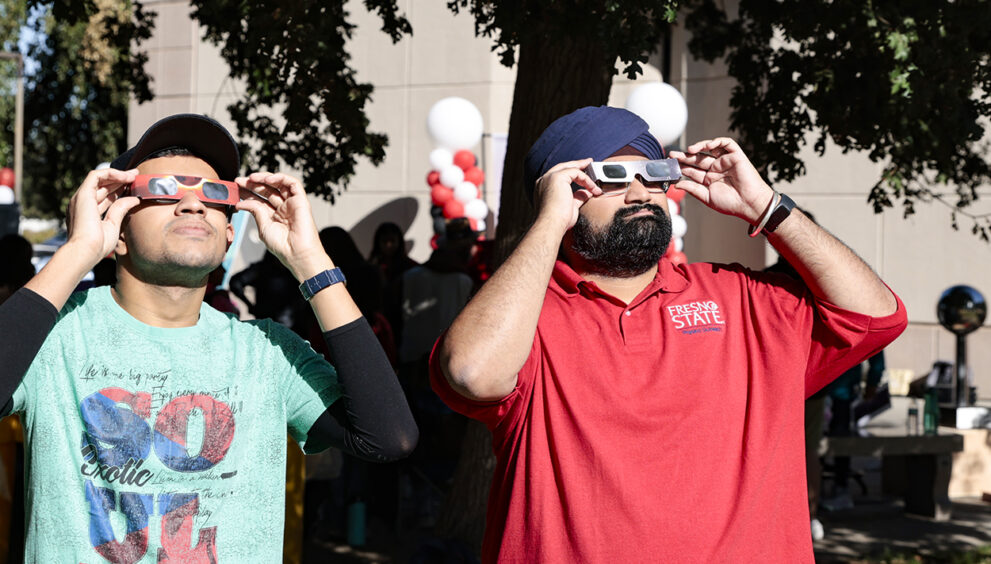Event Details
April 8, 2024, from 9:45 a.m. to 1 p.m.
Witness a celestial spectacle on Monday, April 8, as a partial solar eclipse graces the skies above Fresno.
Join us at Fresno State’s Downing Planetarium to view the rare moment
Dr. Steven White, Fresno State Physics professor and director of the Downing Planetarium as if the viewing is dependent on the weather.
“If it is partly cloudy, we can still set up the telescopes and wait for breaks in the clouds to pass over. If it is completely 100% thick clouds or raining then we will not be able to set up telescopes,” White said. “However, we will have the programs, no matter what.”
Safe Viewing & Educational Programs
The eclipse will begin at 10:12 a.m. and continue until 12:21 p.m. The maximum coverage, as viewed from Fresno, will be 50.9% and occur at 11:15 a.m. Solar telescopes will be set up outside the Downing Planetarium to ensure the safe viewing of the eclipse.
“It is not recommended to view a partial eclipse, even for an instant, without proper eye protection,” said Dr. Steven White, Fresno State Physics professor and director of the Downing Planetarium.
Solar eclipse glasses are also available for $5 each at the planetarium.
Free Planetarium Shows
Enhance your experience with our free planetarium shows:
- 11:30 a.m.: Eclipse: Whys, Wonders, & Wows
- 12:15 p.m.: Eclipse: Whys, Wonders, & Wows
These shows are free and open to the public. Reservations are not required, but seating is limited.
Parking Information
Parking permits are required to park on the Fresno State campus. Day passes can be purchased for $6 at permit machines on Barstow, Woodrow, and San Ramon Avenues.
Downing Planetarium Location Address
5320 N. Maple Ave. M/S DP132, Fresno, CA 93710
Visit the Downing Planetarium website for details.
https://csm.fresnostate.edu/physics/downing-planetarium/index.html
Additional Details:
- A free planetarium program, Lights Out! Eclipses: Whys, Wonders, & Wows will also be available for viewing inside the 72-seat star theater during the celestial event.
- The Physics Department professors will be on hand to answer questions about the eclipse.



